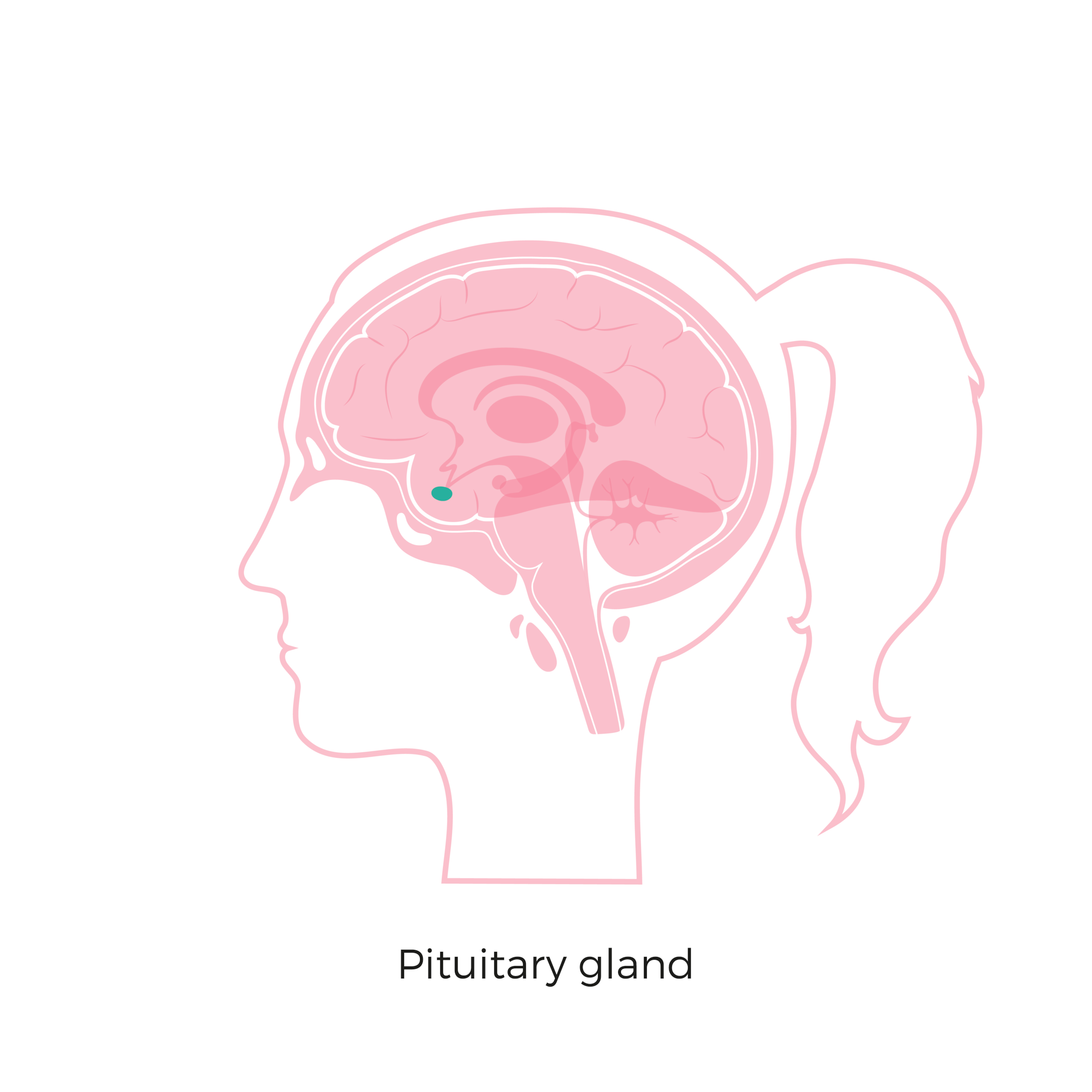Causes of high prolactin in men



Prolactin is a hormone that affects the level of oestrogen and testosterone hormones in both men and women. It is increased in a condition called hyperprolactinemia. It also induces the production of breast milk.
The amount of prolactin in the blood is determined by a serum prolactin (PRL) test. The pituitary gland, a small gland near the base of the brain, produces the hormone prolactin. Throughout pregnancy and after delivery, prolactin induces the breasts to expand and produce milk.
Hyperprolactinemia is a condition when there is too much prolactin in the blood of both men and nonpregnant women. In women, hyperprolactinemia is comparatively common. Hyperprolactinemia affects about one-third of women in their reproductive years who have irregular periods but healthy ovaries.
Women may experience several symptoms, including difficulty conceiving and milk production in breasts outside of pregnancy. 90% of women with the condition of galactorrhoea also have hyperprolactinemia. High levels of prolactin prevent other hormones like progesterone and oestrogen from being produced normally. Ovulation may vary or stop as a result. Additionally, it may cause missed or irregular menstrual cycles. Some women have high levels of prolactin but no symptoms.
In men, prolactin may cause an inability to gain an erection during sex (erectile dysfunction) or generally a reduced desire for sexual activity.
There are numerous impacts of prolactin. It causes the breast to expand and prepare for milk production (lactation), which typically begins when levels of progesterone decline by the third trimester of pregnancy and a feeding stimulation occurs. In regards to maternal behaviour, prolactin is crucial.
Prolactin has been demonstrated to have differing effects on lipid synthesis in mammary and adipose cells. Bromocriptine-induced prolactin insufficiency boosted adipocyte lipogenesis and insulin sensitivity while lowering them in the mammary gland.
Low levels of sex hormones—oestrogen in women and testosterone in men—are caused by elevated prolactin levels. In women, the consequences of slightly raised prolactin levels can significantly increase or decrease oestrogen levels.
Prolactin can work as a mild gonadotropin when it is within the standard reference ranges, but it also inhibits the release of gonadotropin-releasing hormones. It is unclear exactly how it prevents the gonadotropin-releasing hormone from acting.
Additionally, prolactin promotes the growth of cells that develop into oligodendrocytes. These cells undergo differentiation to become oligodendrocytes, which coat axons in the central nervous system with myelin.
Following are some causes of high prolactin
Pituitary gland tumours
Certain medications
Prolactin levels can increase as a side effect of some prescription drugs for high blood pressure, mental health, digestive issues, and reproductive health. These medications consist of:
Antipsychotic medications and tricyclic antidepressants, which are recommended for depression, stress, and other mental health conditions
Haloperidol and risperidone, which are medications given for bipolar disorder, schizophrenia, and other mental illnesses.
Methyldopa and calcium-channel blockers are prescribed for high blood pressure.
Several drugs for digestive and kidney diseases, liver disease and other conditions
Other causes include:
Stress or anxiety
Certain foods
Pituitary tumours
Radiation therapy
Prolactinomas, which are due to swelling or tumours on the pituitary gland that result in elevated prolactin levels, are typically benign. Macroprolactinomas are tumours that are greater than 1 centimetre in size. These may result in headaches and eyesight problems.
Your doctor can use a prolactin blood test to determine whether you have hyperprolactinemia if you are experiencing symptoms that might reveal the problem.
A Prolactin blood test is available on the Welzo store.
The majority of medical professionals will examine your blood for thyroid hormone levels (if prolactin levels are high) to see if hypothyroidism might be the reason. To ascertain whether a prolactinoma or enlarging pituitary gland is the source of the problem, imaging tests such as MRI (magnetic resonance imaging) scan of the brain and pituitary gland might be performed to detect tumors of the pituitary.
Increased blood prolactin prevents the pituitary gland from secreting the hormones that regulate the activity of the ovaries in women and the testicles in men. As a result, it causes symptoms in both premenopausal women and men but not in postmenopausal women because their ovaries have already finished producing eggs.
The main female sex hormone (oestrogen) is secreted less frequently in premenopausal women whose ovaries are affected by high blood prolactin levels.
A high blood prolactin level affects sperm synthesis, testosterone production, and testicular function. Low testosterone lowers haemoglobin levels, sperm production, erectile dysfunction and muscular strength. Bone strength (osteoporosis) may decline if levels are low for so many years. Breast soreness and thickening are also brought on by high levels of prolactin in the blood.
Large adenomas can produce symptoms by putting pressure on surrounding brain regions. Vision, particularly peripheral (side) vision, can be hampered by compression on the eye's nerves. The thyroid gland and adrenal glands may become underactive as a result of stress on the pituitary gland. This can reduce the synthesis of the hormones that stimulate them. Headaches may also result from pressure.
The purpose of treatment is to reduce a big adenoma's size, particularly if it is squeezing nearby structures, and to bring the blood prolactin level back to normal. The clinician and patient should discuss the planned treatment's potential advantages and disadvantages.
Not every prolactinoma needs to be treated. The tumour should almost certainly be addressed if it is large or causing symptoms, but if it is little or not creating any symptoms, treatment is not necessary.
When treatment is required, dopamine agonist therapy is effective for the majority of prolactinomas. Alternative treatments should be sought if an adenoma does not react to any of these drugs or if they have unacceptable adverse effects.
Want to learn more about prolactin? Read our article about normal prolactin levels or learn about other blood tests on offer on the Welzo store.









Plus get the inside scoop on our latest content and updates in our monthly newsletter.